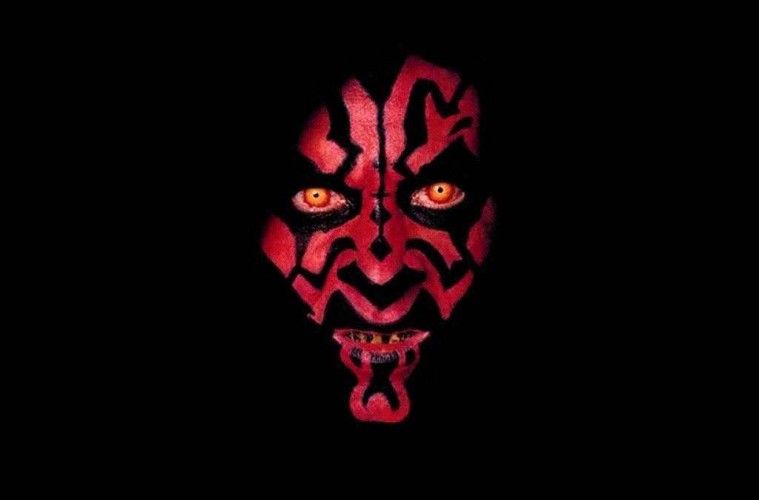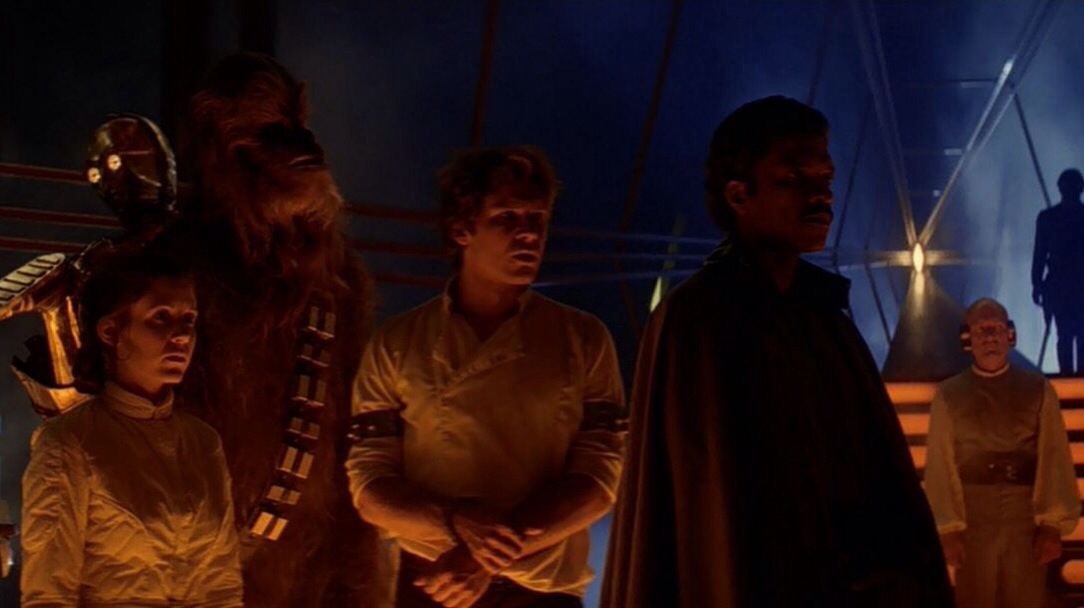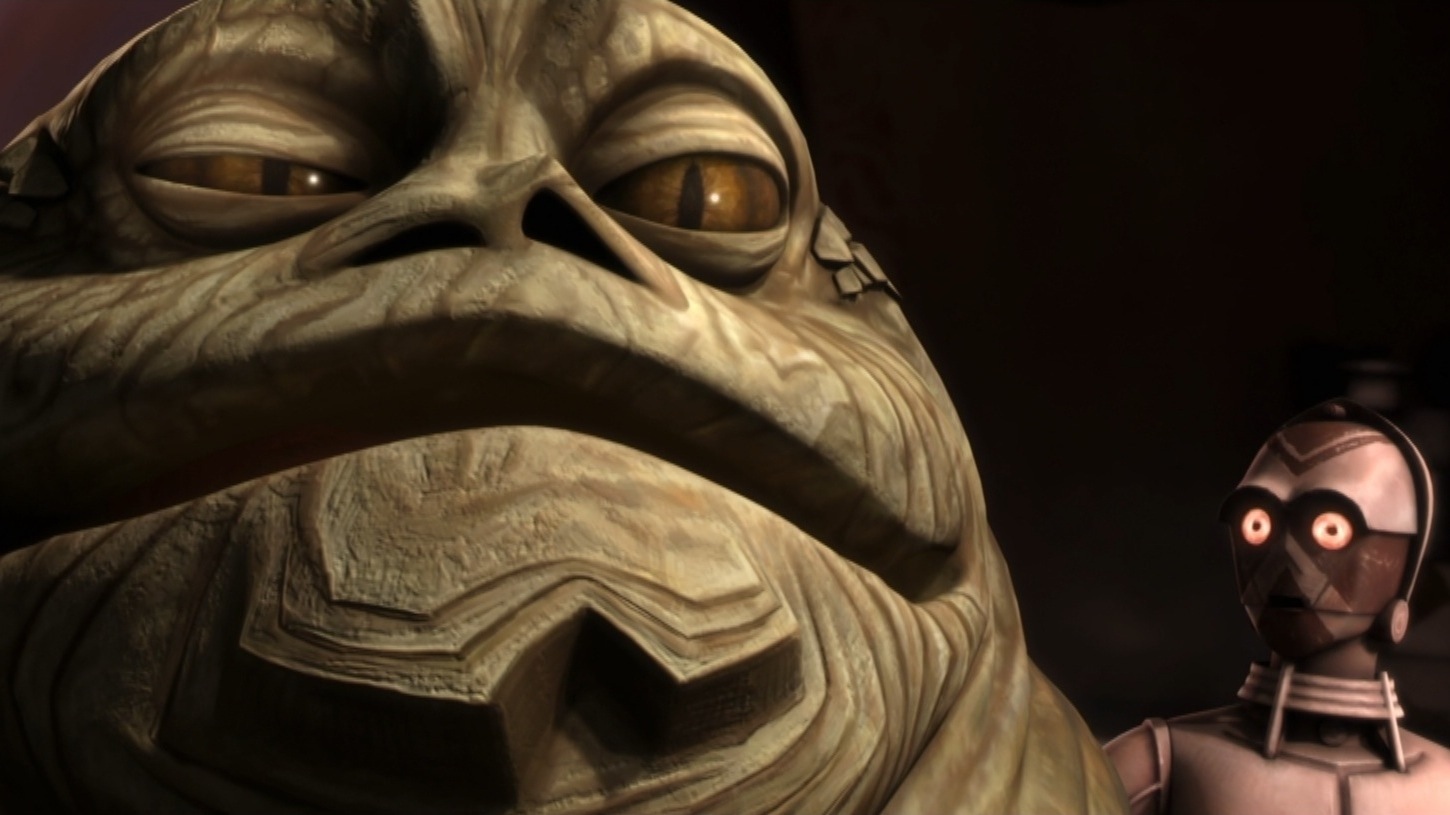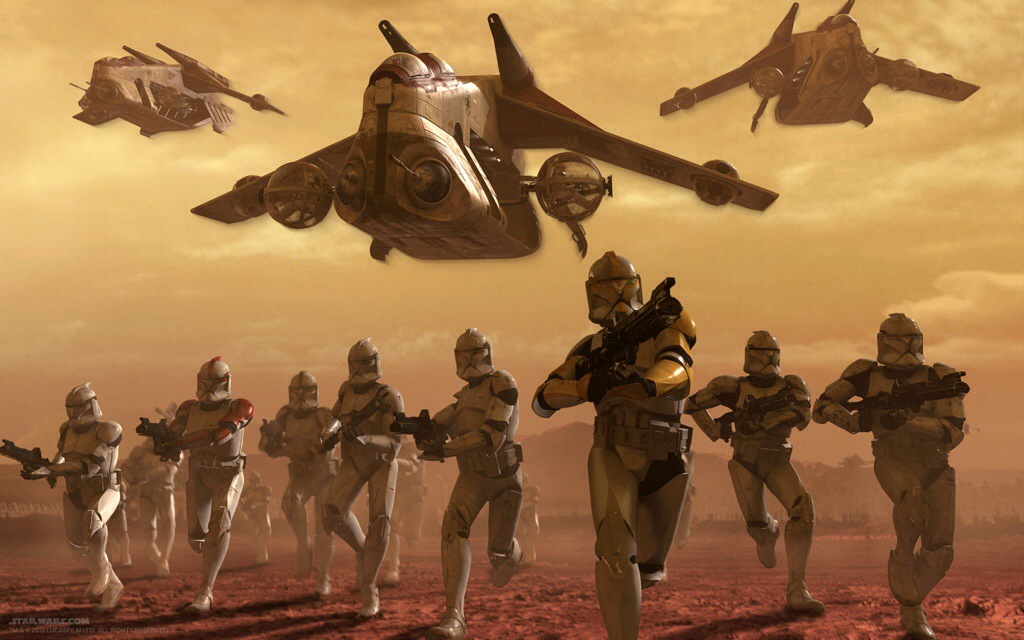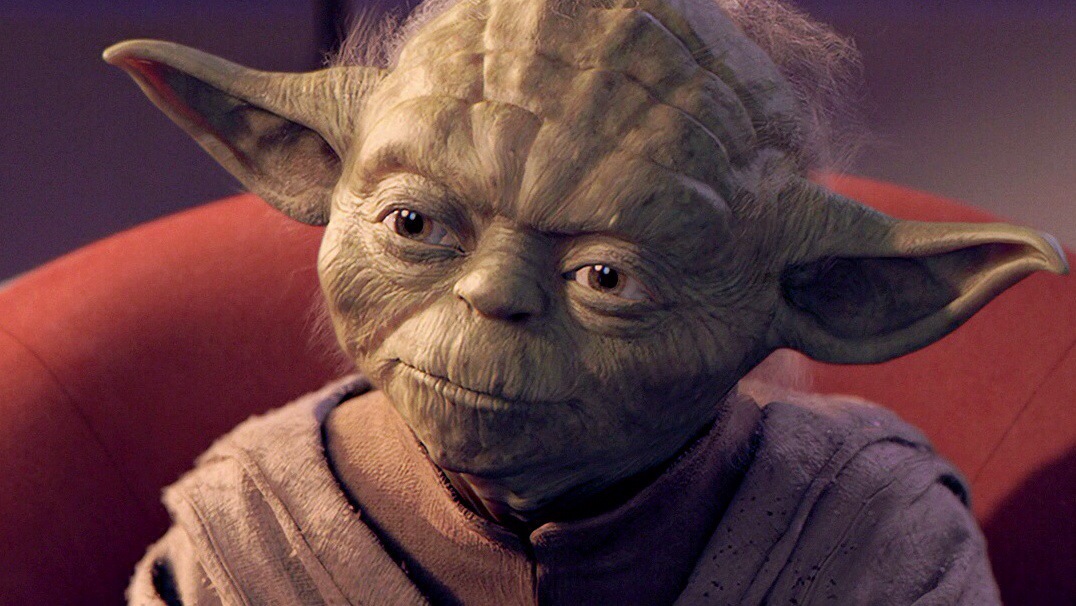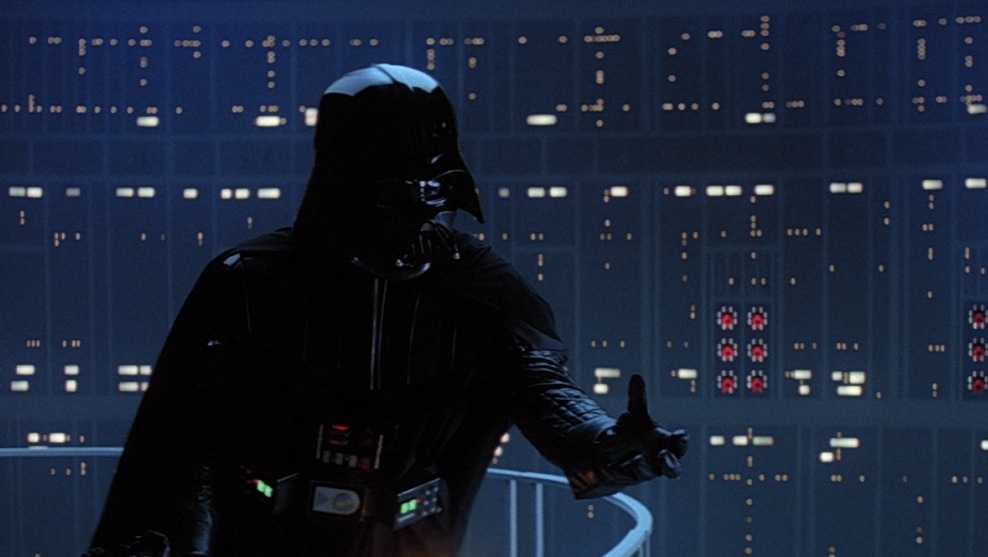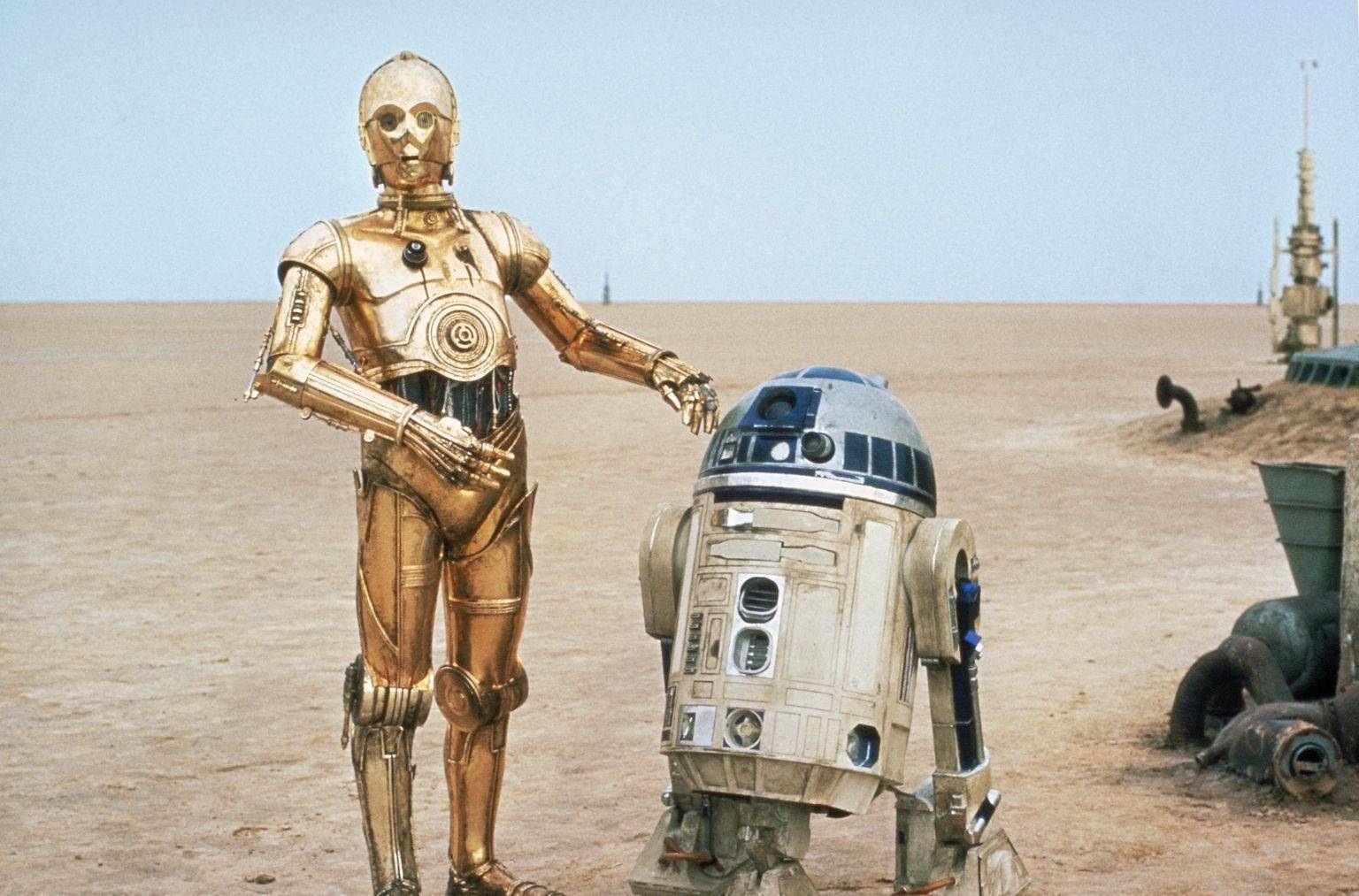Everybody knows Star Wars.
Most people have seen it, but even those who haven’t have certainly heard of it. It’s on the DVD shelves in Best Buy, it’s in every corner of Toys R Us, it can be found in almost every major bookstore around the country. It’s safe to say, I think, that no film franchise, or any film even, has had as profound of a cultural impact as Star Wars. No film’s quotes, imagery or musical score are as widely known as Star Wars.
Star Wars is great. There’s no two ways about it. It is the quintessential Hollywood Blockbuster. It captured the imagination of children and adults alike all across the world and continues to do so to this day. The question is; what is so great about Star Wars? Some say the dialogue, others say the action, some say the music, and still others will chalk it up to the franchise’s always state-of-the-art visual effects. Whatever the reasoning, you would be hard-pressed to find somebody who doesn’t like, or even love, Star Wars. Or, did, before those prequels came out.
But that’s why I’m writing this article here. Yes, I am about to defend the Prequel Trilogy. Because I believe that there are two essential things that make Star Wars “Star Wars”. And I fully believe that, despite of some serious creative missteps, those two truly great elements never really left the franchise. And yes, that includes The Phantom Menace.
Part One: The Universe
The most impressive element of the Star Wars franchise is the element that stretches beyond the borders of the materials seen in the movie theaters. The universe of Star Wars is vast and deep, completely dwarfing any other film series out their. Even the hyper-dense lore of Tolkien, as visualized in The Hobbit and The Lord of the Rings film trilogies, doesn’t hold a candle to the massive expanse that is the world (or, “worlds”) of Star Wars. The reason for this is simple: this series, though beginning in the brain of George Lucas, has grown through the imaginations of screenwriters, authors and game-makers all over the world. Lucas laid the frame work, and then allowed other people to play in the sandbox he created.
The result was universe whose history stretches well, well over twenty-thousand years time. But, unlike the works of Tolkien, those years aren’t simply experienced by reading historical texts that detail events ad nauseam. Star Wars can be experienced in narrative form. The backstories are the stories. The history isn’t just plot-less information provided in appendices and movie tie-in guides, they’re offered in narrative form. There are sixteen full novels, more than a couple video games and quite a few comics that all chronologically take place before the films even begin. There are even more during the films and even more after them. Every character, no matter how minor, even those who the audience see only a fleeting glimpse of in the films, has a full backstory and personality provided for them. Every species has unique traits and a home world that anyone can learn about, in-detail, by quickly searching the endless archives of Wookieepedia, the Star Wars Wiki. Thousands of species, cultures, religions (the number of theological variations amongst the followers of The Force is astounding), weapons, planets all make up the inconceivably vast universe that is Star Wars. All of which serves to further support the films that they spawned from. It’s cool to see virtually any of the hundreds of Jedi in the films, who are only given a brief moment onscreen, having read an entire novel (or comic or video game) where they were the featured hero. And that is really only a claim that Star Wars can boast. In the realm of immersive fantasy, none can compare to the world that Lucas constructed, but it was in the prequels that it really came into it’s own.
The world of Star Wars exploded like it had never before in Episodes I, II and III. I mean, for heaven’s sakes this universe has a senate. There is a complex governmental system to this thing. If anything the prequels showed us that the universe of Star Wars is every bit as vast and diverse as our own, absolutely packed with every little detail imaginable in a manner that cinematic fantasy simply has not seen anywhere except Peter Jackson’s “Middle Earth” films.
As a kid, it was the prequels, not the Original Trilogy that got me hooked on Star Wars. I was enthralled by how intricate the universe is. The powerful stoicism of the Jedi Knights of the Old Republic. The senators from hundreds of different planets all meeting together on the city-world of Coruscant. It all felt so big, but so tangible. For kids, it’s a world to get wonderfully lost in. And considering that the Star Wars prequels target audience was, in fact, kids, I would argue in that respect they were a smashing success. There has been no film or film series in cinematic history that ever captured my imagination as much as the Star Wars Prequel trilogy. And it’s the depth and breadth of imagination that George Lucas and the countless authors and illustrators put into that universe that I have to thank for that.
Part Two: The Legend
Technically, I could call this section “the story”, but I don’t think the term “story” does true justice to the narrative of Star Wars. It’s an epic about tragedy and redemption on a scale that so few Hollywood blockbusters even dream of. A few days ago I asked two of my friends, neither of whom have ever really seen Star Wars, two questions. The first question was “who is the main character in Star Wars?” One answered “Luke Skywalker”, the other, “Han Solo”. I then asked them who the true villain of Star Wars is. They both answered “Darth Vader”. While these answers each have some level of legitimacy to them, in reality none of them are truly accurate. The true story of Star Wars is far more nuanced than most of the general public seem to recall or realize. Everybody knows lightsabers and The Force. Not everybody knows who and/or what, Star Wars is really about.
For the sake of those reading who haven’t seen these films, or haven’t seen them in a long time, I will refrain from going into detail here, as the story of Star Wars is something that should be experienced rather than dictated to you by me. The true protagonist of the story is Anakin Skywalker. It is his journey that forms the narrative at the series’ heart, and I believe that to be true of the Original Trilogy as well as the prequels. Much like long-form epic poetry the story spans over forty years, chronicling the life of a man whose inner conflict dictated the fate of the very universe he lived in. And though the execution was, at times, lacking, the power of the story is still apparent. For those willing to engage with these films past their surface level (I know quite a few people who refuse to take anything with lasers in it seriously), the narrative underneath is one of the most heartbreaking, yet ultimately uplifting stories in all of cinematic history. The story of Star Wars is a completely unique experience. There is no other series like it and there really never will be. That fact, in and of itself, gives Star Wars a magnitude of worth, as a film series and as a story.
It is here that the prequels show their true value. I would argue that, while the story for the Original Trilogy is great entertainment in it’s own right, the story is not truly completed without the Prequel Trilogy. The Prequel Trilogy is an absolutely essential part of Star Wars, warts and all. It truly is the other half of the full narrative, and the viewer is poorer without having seen it. The Prequel Trilogy, Revenge of the Sith in particular, installs the Original Trilogy with an entirely new depth of meaning that is entirely worth suffering through Jar-Jar Binks to experience. The moments of dramatic parallel, particular between Revenge of the Sith and Return of the Jedi are a testament to the power of George Lucas’ imagination. Is he a master wordsmith? No. But his skill with imagery is virtually unmatched in today’s cinema. His ambition in the realm of story is nigh unheard of. His passion for his films, even at their humongous scale, is rare gem amidst a sea of mediocrity. Say what you will about his writing abilities, but Lucas loves these movies and their story on a level that most people simply do not understand. And his love shows. Through all the awkward dialogue, Hayden Christensen’s acting, and (again) Jar-Jar Binks, Lucas’ passion still shines bright. The spark of imagination and dedication, the loving hand of a craftsman is behind every stroke of every episode in the Star Wars Saga. And if that is not worth celebrating, than what is? Really, the complaints leveled at the Prequel Trilogy are largely surface issues. So many people get so stuck on their nit-pickings that they’ve become blind to the broader picture, and the legitimate artistic beauty therein. Watching a film borne out of love is a rare, rare gift. One that we squander in favor of crowd pleaders that pander to their audience’s whims, all while sacrificing a story that’s really worth telling.
Star Wars is cinema at its purest. A timeless story that kids, adults and everybody in between can love and enjoy, presented by a storyteller who deeply desires to share his unique vision with them. The world of cinema would be a far poorer place without Star Wars, Prequel and Original trilogies alike. And we have George Lucas to thank for all of that.
Part Three: Episode VII
We are currently in an interesting era for Star Wars. Episode VII is kicking off production with JJ Abrams at the helm, and it would seem that George Lucas’ involvement is very, very minimal. What does this mean for Star Wars? Sure, fans have complained about Lucas for years, but they more or less ignore the fact that Lucas was also the soul of Star Wars. No Lucas means that Star Wars is in a potentially dangerous place. And Episode VII runs the serious risk of being a hollow anti-prequel, mimicking the Original Trilogy in style, but completely lacking the powerful story that formed the backbone of the original Star Wars Saga.
So the question becomes “how do you make great Star Wars without the visionary who created Star Wars?”
Fundamentally, what Episodes VII, VIII and IX really need is a strong creative voice. Whether that be JJ Abrams, or Lawrence Kazdan or Kathleen Kennedy, Star Wars needs a mastermind with a plan. It needs a new story to drive it through these next films, or else it won’t really be “Star Wars”. Star Wars has adventure, to be sure, but disconnected adventures lacking an overarching theme or character arc fundamentally misses what Episode VII needs at it’s center to be a justifiable follow-up to Return of the Jedi. A space epic can’t exist without the “epic” part. And that means there must be a long-form story in place for the next three chapters, or even the next six chapters. There really needs to be a person, or a team of people, like a television series, who know what they’re doing, (mostly) know where this is going, and have a story and characters that they’re passionate about and dedicated to. Star Wars isn’t a cash cow you can just tap into and create something worth having around. It’s so much more than that.
I have faith in Abrams’ creative abilities and I have faith in Kathleen Kennedy’s loyalty to Lucas’ vision and legacy. I have hope for the future of Star Wars, even without George Lucas. Time has proven again and again that there are other people out there passionate about Star Wars who can use this universe to tell a tale worth telling. Let’s hope Mr. Abrams is one of them.
Andrew Allen is a television and film writer for Action A Go Go. He is an aspiring screenwriter and director who is currently studying at the University of Miami. You can check him out on Tumblr @andrewballen and follow him on Twitter @A_B_Allen.

